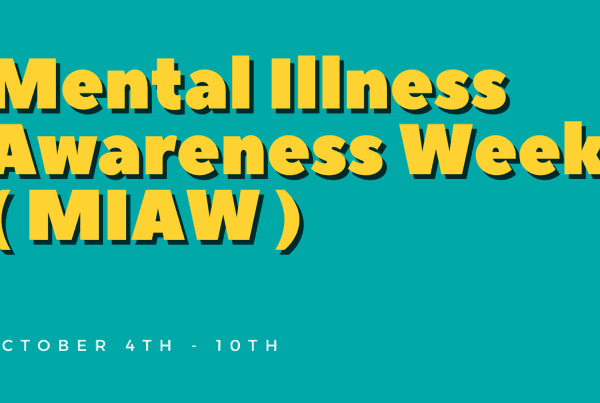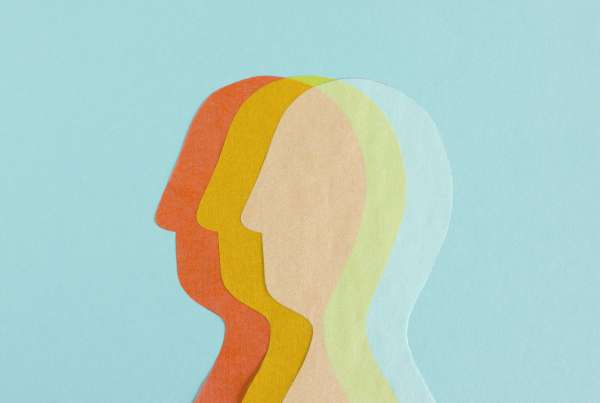Over half of individuals diagnosed with a substance use disorder also reported symptoms of a mental health problem. Conversely, being diagnosed with a condition like anxiety disorder or depression greatly raises the risk of struggling with substance abuse, with a third of people diagnosed with a mental illness also showing signs of addiction, while over half of people diagnosed with severe mental health problems struggled with drug use.
A co-occurring mental health issue with a substance use disorder (and vice-versa) is called a dual diagnosis. But, what is the best treatment for dual diagnosis? And how do you seek help?
What is a Dual Diagnosis?
The link between drug use and mental health issues is very strong because of multiple distinct factors:
- Addictive substances affect behavior and thinking. This can have a negative effect on self-esteem and exacerbate existing mental health issues. Addictive substances can also negatively impact cognition and problem solving and decrease a patient’s resilience to their mental health symptoms.
- Patients with mental health problems are more likely to become dependent on addictive drugs. Using drugs can help distract from certain mental health symptoms, but certain addictive drugs actively combat symptoms of mental illness (such as alcohol and anxiety) if only for a very short time.
- Both addiction and conditions like depression, anxiety, and psychosis are hereditary. In some cases, a person who is more likely to be affected by a traumatic event or a family history of depression may also be more susceptible to addictive substances.
- There is a strong societal and legal stigma against both mental health problems and addiction. Patients may have a harder time getting the care they need. In times of crisis, access to care is limited and restricted, increasing the risk of relapse. There are different forms of discrimination and stigma against identifying as a mental health patient or an addict. And rather than respond with compassion, outbursts caused by mental health issues or drug use may be treated violently in public.
- Both drug use and mental health problems are interdependent and can be causal in either direction. A patient with depression may develop an alcohol problem later, and someone who first begins developing a drinking problem might later show signs of depressive thoughts and suicidal thinking.
A dual diagnosis or a co-occurring disorder can greatly complicate potential treatments.
Trying to address a patient’s suicidal thoughts or anxieties without subsequently addressing their drug use and its physical and mental consequences is futile.
Similarly, putting someone through rehab without a sensible program in place to help them seek therapy for their associated mental health issues will likely result in relapse and further complications, as a patient will have a hard time believing in their ability to get better, deepen their depression, and feel more self-deprecating.
A holistic approach, a combined treatment that treats a person as a whole and takes all of a patient’s qualities and circumstances into account, is necessary for the successful treatment of a dual diagnosis.
What is the Best Treatment for Dual Diagnosis?
There are multiple different elements to a dual diagnosis treatment plan. It combines cognitive behavioral therapy with treatment elements from substance use treatment, including residential rehab, long-term outpatient treatment, partial hospitalization, aftercare services, and more.
Depending on a patient’s diagnosis and the severity of their symptoms, medication may also play a central role in the treatment process, especially for conditions like bipolar disorder and schizophrenia.
For teens, finding the appropriate treatment environment is critical. A teen rehab facility with a focus on dual diagnosis will primarily have other teen patients, helping teens stay among their peers and emulating a supportive residential or school environment.
In addition to creating a safe space for teens to go through withdrawal symptoms and avoid relapse, these facilities are staffed by professional nurses and other medical personnel, including psychiatrists and therapists. Group sessions and one-on-one sessions help teens discuss their experiences, share breakthroughs, and learn how to cope with addiction and mental health disorders.
Inpatient vs. Outpatient Treatment
In an addiction treatment setting, most substance use treatment programs can be characterized as either inpatient or outpatient treatment programs. Inpatient treatment programs provide a space for patients to live and receive treatment alongside a unique day-to-day experience in a setting conducive to recovery, both physical and mental.
Outpatient programs are less involved but share much of the treatment structure – only that a patient must come to visit a clinic and set regular appointments, rather than living in an adjacent treatment environment.
There are pros and cons to either approach, and both help patients recover and get better over time. Some patients don’t need inpatient treatment and would benefit more from a routine at home and at school than a fresh start. Others need a period away from their native environments to recalibrate and refresh.
Long-term Lifestyle Changes and Support Systems
Even after the professional treatment process has ended, recovery continues. The long-term prognosis for a patient with both substance use problems and a mental disorder after initial treatment often relies on the quality of their support network.
Yes, there is an individual responsibility to look after oneself – but some mental health issues are chronic, with symptoms that can last a lifetime. We all need help, and loved ones struggling with bipolar disorder, severe depression, an anxiety disorder, or schizophrenic symptoms may need it more than the average person.
To that end, long-term treatment often entails rallying friends and family to provide support, whether that’s accompanying a patient to a therapy session, helping out around the home when they’re alone, calling an intervention in the case of a relapse, or signs of worsening symptoms.
Education is important as well, both on the part of the patient and their friends and relatives. Learn more about your loved one’s condition and the telltale signs of their disorder, and educate yourself on treatment processes, important caregiving tips, and self-care measures. Help them keep up their coping skills and stress management techniques by encouraging them to go back to the gym with you, cooking healthy meals alongside them, or picking up an old hobby together, like drawing or music.
Household measures, long-term support, and occasional interventions are important for managing a chronic mental health issue. But there are times when specialists are needed. Do not be afraid to talk to your loved one about seeing professional help.








